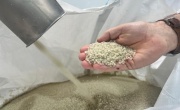Somerset to start recycling trials in September
Somerset Waste Partnership (SWP), the body which manages waste services for Mendip, Sedgemoor, South Somerset and West Somerset District Councils, Taunton Deane Borough Council and Somerset County Council, has announced that it will launch three recycling trials in Taunton Deane next month.
The three-month ‘Recycle More’ trials, which will cover 5,000 households in parts of Taunton, Wellington and Wiveliscombe, are being undertaken as part of an attempt to find ways of increasing recycling and reducing waste in the area.
Currently Somerset’s twin-stream, kerbside sort system is resulting in a recycling rate of 51 per cent, but SWP claims that £12.2 million a year is spent on landfilling residual waste from householders.
On average, SWP estimates that half the contents of black bags from Somerset households could be recycled.
Trial details
As such, it is implementing three trials to try and boost recycling rates.
Each of the three trial areas will see new items accepted for recycling, including: plastic pots, tubs and trays, beverage cartons such as Tetra Pak containers, and household batteries and small electrical items.
The first trial, covering 1,800 homes in Taunton’s Rowbarton, Deane Drive and Hillyfields areas, will only see the new kerbside recycling materials added to the current system. The frequency of recycling, food waste recycling (weekly) and residual waste (fortnightly) collections will remain the same.
The second trial, which will comprise 2,300 homes in Wellington’s Longforth Road, Holyoake Street and Waterloo Road areas, and Taunton’s Waterleaze and Thames Drive areas, will see dry recycling collections (including the new materials) pushed back to every other week, in line with residual waste. Food waste will contine to be collected once a week.
The third trial, covering 1,100 homes in Wiveliscombe and Langley Marsh, will see householders receive weekly collections of all recyclables (including the new materials), but with residual waste collected once every three weeks.
There will be no changes to clinical, bulky or garden waste collections.
SWP has said that all households involved in the trials will be sent information that will explain exactly what will be happening and when. Participants also have the option to sign up for regular emails about their trial’s progress, and collection dates.
All trial areas are close to recycling sites if residents have excess waste, but SWP has said it will deliver clear sacks, reusable bags or extra boxes for dry recycling, where needed.
‘Results will be fed into plans for future services’
Speaking of the announcement, Steve Read, Managing Director of SWP, said: “Evidence produced by the Recycle More trials will help show what works and how people manage. After these trials, collections will revert to their usual timetable and all the results will be fed into our plans for future services.
“Unless people fail to recycle, including the new items collected – plastic pots, tubs and trays; drink cartons; and both household batteries and small electrical items – they should have very few problems with the trial of three-weekly collections…Most will find that a little extra effort to fill their recycling boxes and food waste container will free up enough refuse bin space.”
He added that only those who ‘ignore clear and repeated advice to never put food into their refuse bin’ will have problems with smells, flies or vermin during the trial.
Read concluded: “Our partner councils say we must consider every possible option, including ways to help and encourage every resident waste less and recycle more.
“If the finances stack up, we would very much like to add extra materials to recycling collections. And if less frequent refuse collections encourage people to recycle far more and waste far less, while cutting vehicle numbers on our roads, these are positive, money saving steps forward.
“We cannot go back to the bad old days of pollution, waste and sky-high costs; we have to move ahead to be both green and very lean, and if we all pull together to cut our waste and boost our recycling, everyone wins.
A number of UK councils have already committed to three-weekly residual waste collections, including: Gwynedd, Bury and Falkirk. These councils have made these changes to increase recycling, and to reduce the amount spent on waste treatment and disposal costs.
Read more about three-weekly waste collections.




